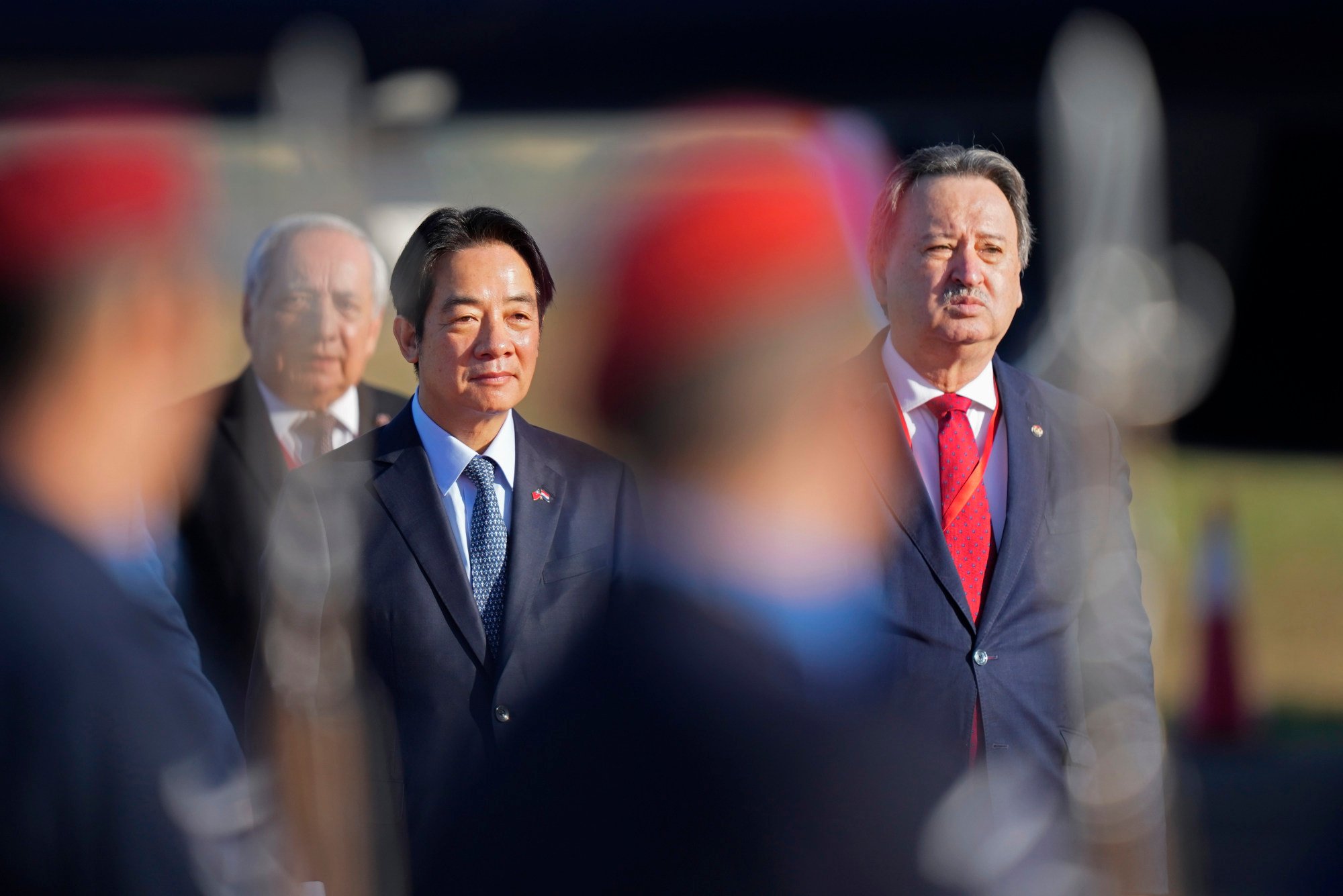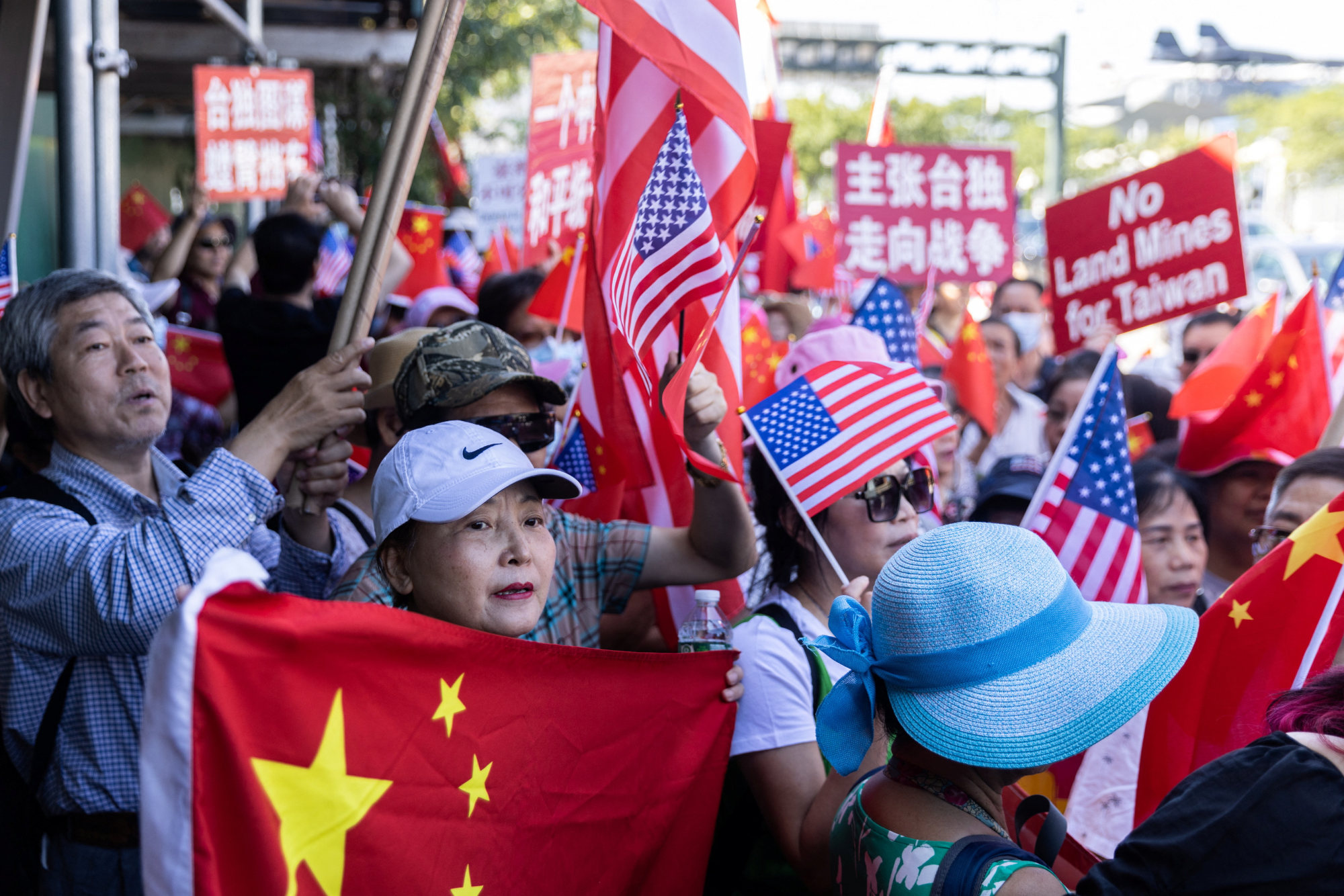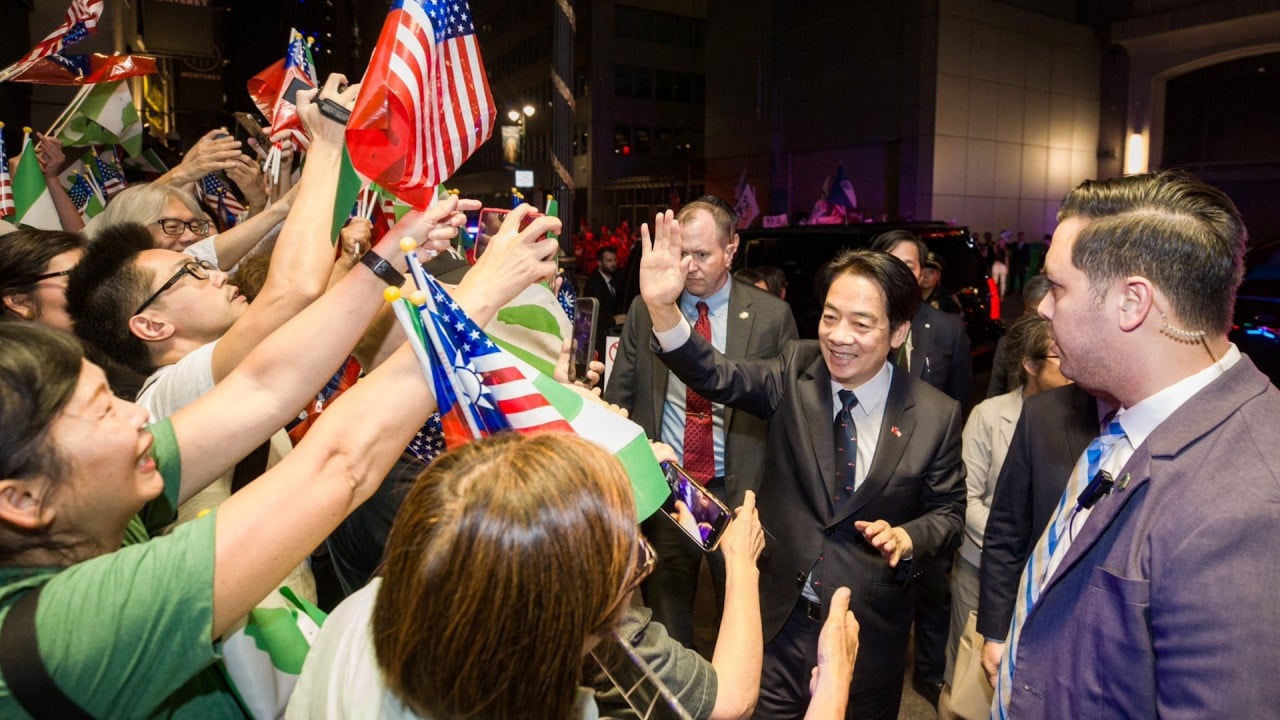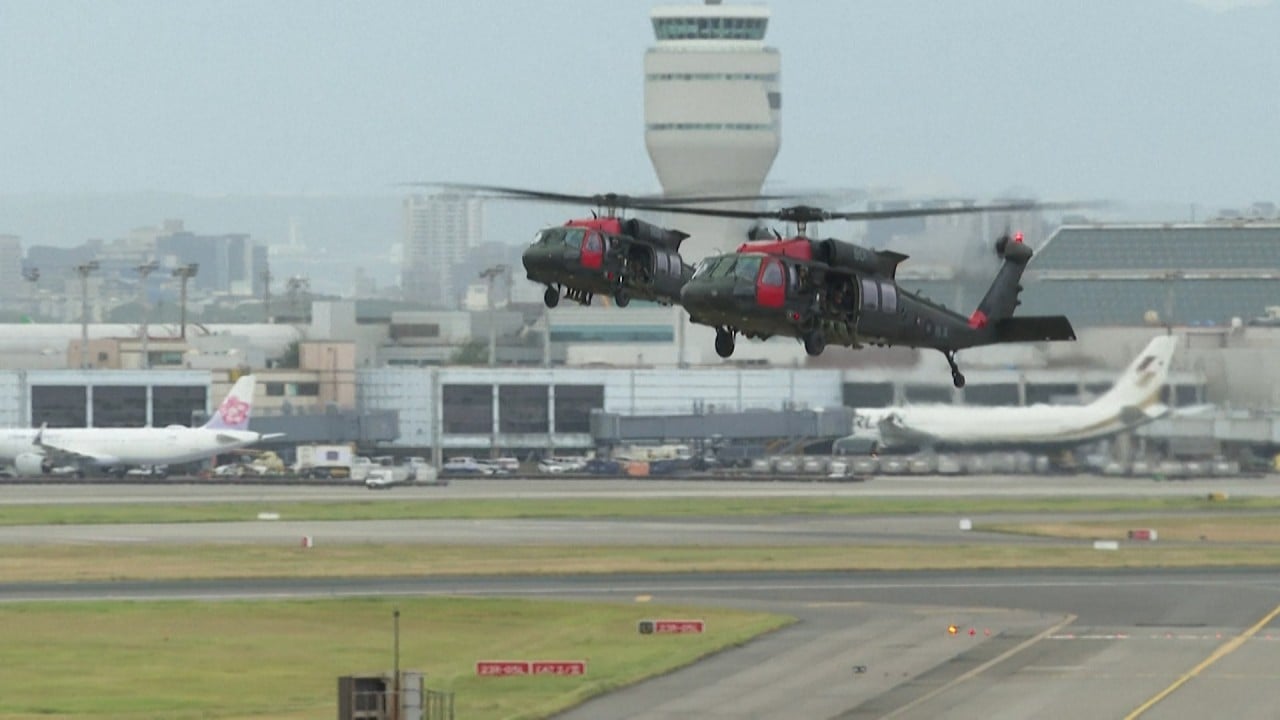
Taiwanese presidential front runner William Lai uses US stopover to ditch pro-independence tag
- After previously being seen as ‘deep green’, Lai has now stressed he has no intention of pursuing independence should he become president
- Analysts say it is too early to tell whether the comments the vice-president made on his trip to the US and Paraguay will win him more votes
Long regarded as “deep green” – a reference to the more radical, pro-independence wing of the party – Lai previously told the island’s legislature he was “a pragmatic worker for Taiwan independence” when he was premier in 2017.
It is a label that has raised concerns in the past, with the US and international community worried he might declare independence if elected president.
“Lai fully understands that if he fails to modify his stance, Washington would find him a troublemaker like former president Chen Shui-bian,” said Li Da-jung, a professor of international relations and strategic studies at Tamkang University in New Taipei.
The US, like most countries, does not recognise Taiwan as an independent state but is opposed to any unilateral change to the status quo by force.
“The [Bloomberg] interview, which coincides with Lai’s visit, has allowed him to assure the US that he has no plan to declare independence and change the cross-strait status quo,” Li said.
In the interview, published on Tuesday, Lai said there was no need for him to pursue formal independence.

“Taiwan is already a sovereign, independent country called the Republic of China. It is not part of the People’s Republic of China. The ROC and PRC are not subordinate to one another. It is not necessary to declare independence,” he said.
Lai also said there was no need for Taiwan to change its current name as it was constitutionally set. He said he would follow Taiwanese President Tsai Ing-wen’s practice of using the term “Republic of China (Taiwan)”.
“Lai’s so-called maintaining the cross-strait status quo is, in reality, a scheme to create one Taiwan and one China in the guise of peaceful separation,” the mainland embassy in Washington said in a statement on Tuesday.
PLA sorties force Taiwan’s military fuel budget up 55 per cent to US$344 million
It also accused Lai of trying to use the so-called like-minded allies to support him in seeking independence from the island – a move it said would be “bound to fail”.
On Tuesday, Zhu Fenglian, a spokeswoman for the mainland’s Taiwan Affairs Office, also condemned Lai as a “out-and-out Taiwan independence worker and troublemaker” who would “bring war to Taiwan”.
She accused Washington of repeatedly ignoring Beijing’s protests by receiving Lai or having official contact with the island.
“The Chinese side will adopt resolute measures to defend our sovereignty and territorial integrity,” she said.
A day after Lai returned to Taiwan on Saturday, the People’s Liberation Army’s Eastern Theatre Command carried out joint naval and air combat readiness patrols around the island in what it said was a “serious warning against the collusion of Taiwan independence separatists with external forces and their provocations”.
But Stephen Tan, managing director of International Policy Advisory Group, a Taipei-based geopolitical risk and policy consulting firm, said Lai had kept his US transit as low profile as possible to avoid creating trouble and stoking tension in the Taiwan Strait.
The interview has allowed him to assure the US that he has no plan to declare independence and change the cross-strait status quo
“There were no surprises during his transit stay. Lai acted strictly in line with the set protocol – no public meetings with senior officials or congressmen, and only private activities and receptions hosted by ethnic Taiwanese groups,” he said.
Lai who began his overseas visit on August 12 to attend the inauguration of Paraguay’s President Santiago Pena made a 25-hour stopover in New York on August 13 while en route to South America. He also stopped in San Francisco on Wednesday for nine hours before returning to Taiwan on Friday.
Tan said there would have been prior communication between the two sides and that Lai did not try to seek any diplomatic breakthrough during his US transit.
“Lai has done what a responsible, stable, careful and predictable leader should do,” Tan said, adding this would help him win the trust of the US.
Tan said Lai’s interview also revealed his desire to continue to follow Tsai’s policies, including avoiding war with the mainland, which had also helped the US better understand his political view and standing.

Wang Kung-yi, head of Taiwan International Strategic Study Society, a Taipei think tank, said the US transit did not add points to Lai’s presidential campaign as he did not achieve any diplomatic breakthrough during his stopovers.
“Lai’s mission was to attend Pena’s inauguration, and there was no arrangement for him to meet big shots in the US, meaning there was nothing to brag about and no credit to add to his presidential bid,” he said.
Wang also said that in the past large-scale PLA war games around Taiwan – such as those carried out after a visit last year by then US House speaker Nancy Peloisi, or a meeting between her successor and President Tsai Ing-wen – have riled neutral voters, prompting them to hand their ballots to the green camp to express their disapproval.
Tan, however, said for a front runner in the campaign, not losing points meant safety for the candidate.
According to local opinion polls, support for Lai has remained at around 33-35 per cent, sitting above his two opponents – former Taipei mayor and head of Taiwan People’s Party Ko Wen-je, and the nominee of the main opposition Kuomintang party, New Taipei Mayor Hou Yu-ih – who both stand at 20-23 per cent.
Li said it was still too far out from the election to call whether Lai would win the presidential race.
“Support for Lai is almost static at around 35, and if he could not convince moderate voters he would not bring war to Taiwan, he might lose if non-green camp supporters concentrate their efforts on voting for either Hou or Ko after finding neither of the two could beat Lai independently,” Li said.
As to whether deep green supporters would dump Lai for modifying his radical pro-independence stand, all three analysts said no.
“Deep-green supporters would still vote for Lai as they have found Hou or Ko even more unacceptable,” Wang said.



